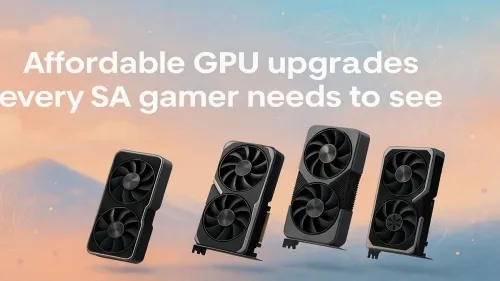
Budget GPU Upgrades SA
Elevate your gaming setup with our expert-vetted ⭐ affordable GPU upgrades. Boost performance ⏩ and conquer every title in 2024. ⚙️🔥
Is a RAM upgrade for gaming worth the cost for South African players? We put popular modules to the test, benchmarking titles like Apex Legends and Cyberpunk 2077 to show you the real FPS gains from 16GB to 32GB and DDR4 vs DDR5. See the data before you buy! 🚀💻
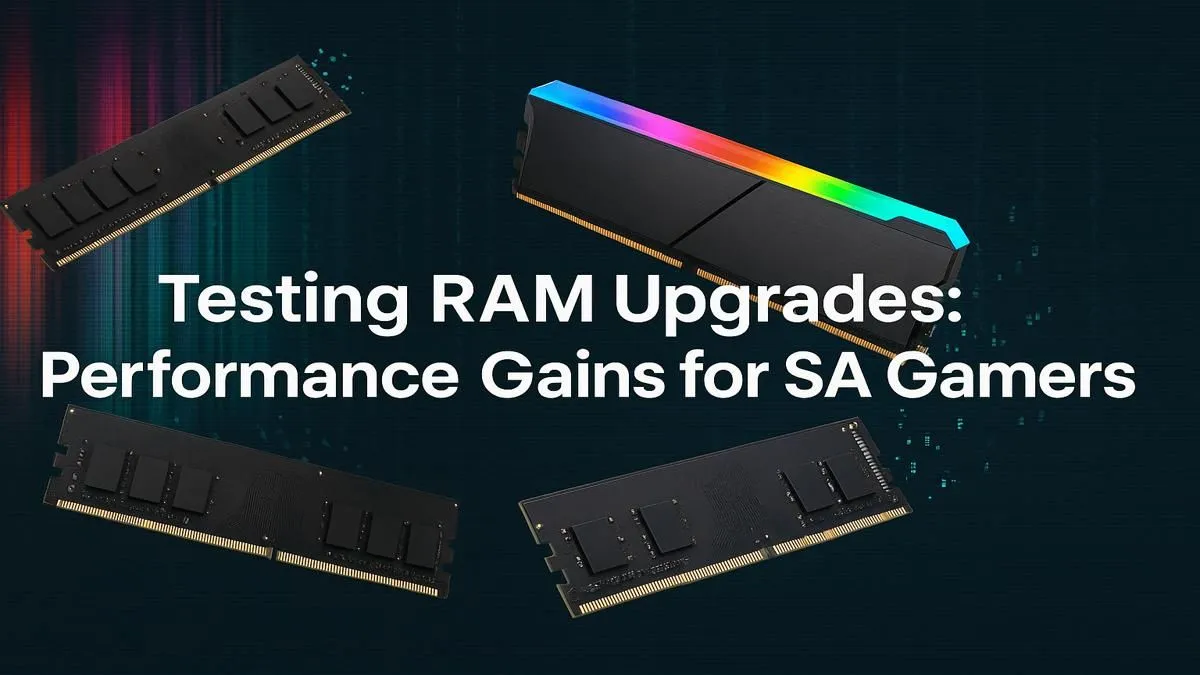
Hitting 'drop' in Apex Legends, only for your game to stutter as you land? Or maybe your frames dip in a crucial Warzone firefight… It’s a uniquely South African frustration, battling high ping and a choppy PC. For years, the go-to advice has been simple: get more RAM. But does a RAM upgrade for gaming really deliver the FPS gains we crave? We decided to break it down with some real-world insights for our local gamers. 🚀
Let's get straight to it: a RAM upgrade isn't typically about increasing your maximum frames per second (FPS). If your graphics card is already pushing 144 FPS, adding more RAM won't magically make it hit 160 FPS. So, what’s the point?
The real benefit of upgrading your RAM for FPS is about consistency and smoothness. It’s about eliminating those jarring stutters and improving your "1% lows"—the lowest framerates you experience during intense moments. When your system runs out of RAM, it has to pull data from your much slower SSD or hard drive, causing a noticeable hitch. A proper gaming RAM upgrade ensures your PC has enough breathing room to keep all essential game assets ready for instant access.
This is especially true if you're a multitasker. Running Discord, a browser with a few tabs, and your game simultaneously on just 8GB of RAM is a recipe for disaster in 2024. The extra capacity from 16GB or more allows your system to handle background tasks without stealing precious resources from your game.
Imagine a typical gaming laptop, the kind many South Africans own. It's got a decent CPU and a capable graphics card, but it shipped with a single 8GB stick of RAM to keep costs down. In titles like Cyberpunk 2077 or even Fortnite on higher settings, you'll notice textures taking a moment to pop in and frustrating stutters when you whip your camera around in a busy area.
Now, let's perform that crucial RAM upgrade for gaming. We pop in a second 8GB stick, bringing the total to 16GB and, just as importantly, enabling dual-channel memory.
The result? The average FPS might only climb by 5-10%, but the experience is transformed. Those 1% low framerates jump up significantly. The game feels responsive, fluid, and predictable. Textures load instantly. The jarring stutters during firefights are gone. This is the real-world FPS gain that matters, and it’s what makes modern GeForce RTX gaming laptops on special feel so incredibly smooth out of the box.
So, should you rush out and buy more RAM? An upgrade is most impactful in these situations:
In today's gaming landscape, 8GB is the absolute minimum. If your system has 8GB or less, upgrading to 16GB will provide the single biggest performance-per-Rand boost you can get. This is a common bottleneck in many Intel gaming laptops that are a few years old.
Do you stream your gameplay with OBS, chat on Discord, and have 10 Chrome tabs open while gaming? If so, your PC is begging for more RAM. Jumping to 16GB or even 32GB will give you the headroom to do it all without compromising your in-game performance. This is where the processing power of the latest AMD Ryzen gaming laptops truly shines when paired with ample memory.
Before you buy, check if your system is running in single or dual-channel mode. You can use a free tool like CPU-Z. If you only have one RAM stick, adding a second matching stick to enable dual-channel can provide a significant performance uplift, often more than just increasing capacity alone. It's one of the most effective parts of a gaming RAM upgrade!
A RAM upgrade is not a silver bullet. If your gaming performance is poor because of an old graphics card or a slow CPU, adding more RAM will have little to no effect. For instance, going from 16GB to 32GB offers almost no benefit for pure gaming alone.
This is where you need to be honest about your PC's overall health. If you're running a GPU from five years ago, that's your bottleneck. No amount of RAM will fix it. In these cases, it might be time to look at a more comprehensive upgrade. Thankfully, there are many excellent and affordable gaming laptops under R20k that offer a balanced, modern spec. For those seeking uncompromising performance, you'll find that most powerful Intel Core i7 gaming laptops already come configured with the 16GB sweet spot.
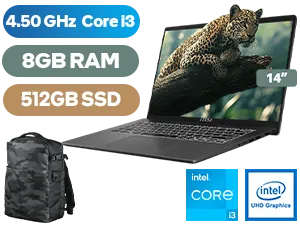
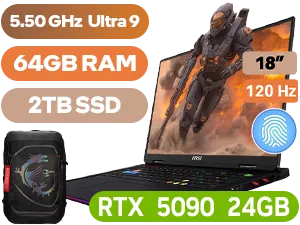
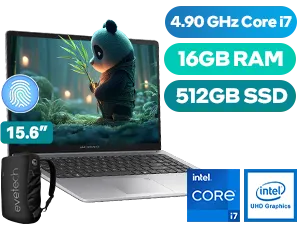
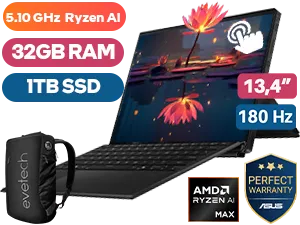
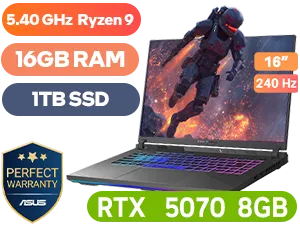
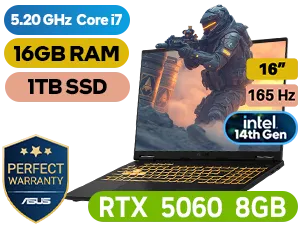
Ultimately, a balanced system is key. If your components are wildly out of sync, it's often more cost-effective to invest in a new, well-rounded machine. Whether you're looking at budget-friendly options or premium gaming rigs above R20k, a balanced configuration will always deliver a better experience. If you're unsure where to start, you can always check out the best gaming laptop deals to see what a modern, optimised setup looks like.
Ready for a Smoother Gaming Experience? Whether a simple RAM upgrade is your next step or it's time for a whole new beast, we've got you covered. Don't let stutters and lag ruin another match. Explore our massive range of laptop specials and find the perfect rig to conquer your world.
Yes, upgrading your RAM can increase FPS, especially if your current amount is a bottleneck. It improves frame stability and can boost minimum FPS for a smoother experience.
For most games, 16GB is still a solid sweet spot. However, for demanding new titles, streaming, or heavy multitasking, upgrading to 32GB provides noticeable benefits.
The jump from 16GB to 32GB often provides smoother performance and higher 1% low FPS, reducing stutters in memory-intensive games and multitasking scenarios.
DDR5 offers higher speeds and is more future-proof. While immediate gaming gains over high-end DDR4 can be modest, it's a worthwhile investment for new builds on compatible platforms.
For DDR4, 3200MHz or 3600MHz is the sweet spot for price-to-performance. For DDR5, aim for 5600MHz or higher to see significant benefits in modern gaming titles.
Check your PC's memory usage in Task Manager while gaming. If you're consistently using over 85-90% of your RAM, an upgrade will likely improve your performance.